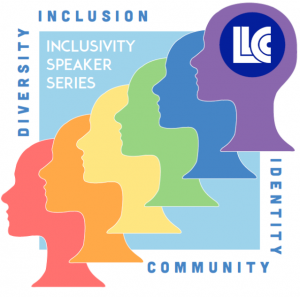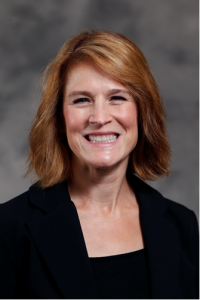 Save the date! The second speaker in the Inclusivity Series, Dr. Stephen John Quaye, will be facilitating three sessions on intergroup dialogue Jan. 28. The sessions include:
Save the date! The second speaker in the Inclusivity Series, Dr. Stephen John Quaye, will be facilitating three sessions on intergroup dialogue Jan. 28. The sessions include:
- 11-11:50 a.m. – Student presentation and facilitated activities
- Noon-1 p.m. – Keynote presentation for faculty and staff
- 1-1:45 p.m. – Facilitated workshop with faculty and staff
The event will also be available via livestream. It is co-sponsored by the Campus Climate Team’s Safety and Inclusivity Workgroup, Student Life and TRIO.
 Dr. Quaye is associate professor in the higher education and student affairs program at Ohio State University and an associate editor of the Journal of Diversity in Higher Education. He is also past president of ACPA: College Student Educators International. Stephen focuses on understanding how students can engage difficult dialogues honestly and productively, as well as how storytelling is used as an educational tool to foster reflection and learning across differences. He also is interested in the strategies educators use to facilitate these dialogues and what they learn about themselves in the process. Most recently, his work explores student activism, as well as how black educators work to heal from racial battle fatigue. His work is published in different venues, including the Journal of College Student Development, The Review of Higher Education, Race Ethnicity and Education, and Teachers College Record. His Ph.D. is from Pennsylvania State University, his master’s degree is from Miami University and his bachelor’s degree is from James Madison University.
Dr. Quaye is associate professor in the higher education and student affairs program at Ohio State University and an associate editor of the Journal of Diversity in Higher Education. He is also past president of ACPA: College Student Educators International. Stephen focuses on understanding how students can engage difficult dialogues honestly and productively, as well as how storytelling is used as an educational tool to foster reflection and learning across differences. He also is interested in the strategies educators use to facilitate these dialogues and what they learn about themselves in the process. Most recently, his work explores student activism, as well as how black educators work to heal from racial battle fatigue. His work is published in different venues, including the Journal of College Student Development, The Review of Higher Education, Race Ethnicity and Education, and Teachers College Record. His Ph.D. is from Pennsylvania State University, his master’s degree is from Miami University and his bachelor’s degree is from James Madison University.

 Dr. Pasque is a professor in educational studies and associate director of qualitative methods in the Office of Research, Innovation and Collaboration at Ohio State University. In addition, she is editor of the “Review of Higher Education,” which is considered one of the leading research journals in the field. Her research addresses complexities in qualitative inquiry, inequities in higher education, and disconnections between higher education and society. She utilizes qualitative methodology as well as studies qualitative methodology. Pasque’s research has appeared in approximately 100 journal articles and books. She is currently the primary investigator for 1) the National Study on Women in Higher Education and Student Affairs since 2008 2) the Epistemological Injustice in Graduate Education research project with Leslie Gonzales, 3) Researching Educational Diversity – The Decolonizing Indigenous Research Team (RED-DIRT).
Dr. Pasque is a professor in educational studies and associate director of qualitative methods in the Office of Research, Innovation and Collaboration at Ohio State University. In addition, she is editor of the “Review of Higher Education,” which is considered one of the leading research journals in the field. Her research addresses complexities in qualitative inquiry, inequities in higher education, and disconnections between higher education and society. She utilizes qualitative methodology as well as studies qualitative methodology. Pasque’s research has appeared in approximately 100 journal articles and books. She is currently the primary investigator for 1) the National Study on Women in Higher Education and Student Affairs since 2008 2) the Epistemological Injustice in Graduate Education research project with Leslie Gonzales, 3) Researching Educational Diversity – The Decolonizing Indigenous Research Team (RED-DIRT).